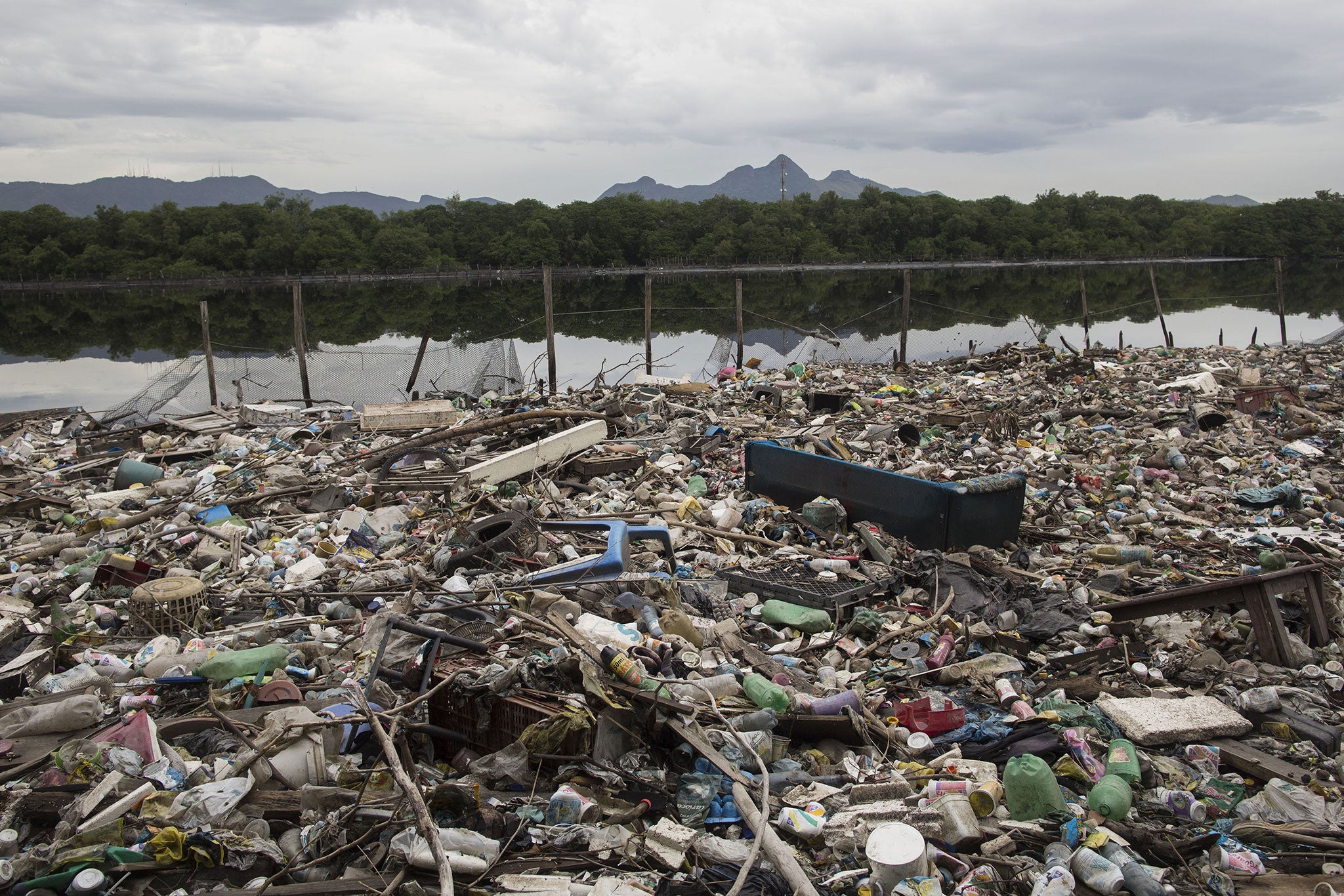Rio 2016 athletes will have to 'swim through human excrement' as Brazil admits water sports sites will not be cleaned in time for Olympics
An investigation has found that not one water site at Rio de Janeiro's Olympic and Paralympic sites are safe for swimming or boating

Your support helps us to tell the story
From reproductive rights to climate change to Big Tech, The Independent is on the ground when the story is developing. Whether it's investigating the financials of Elon Musk's pro-Trump PAC or producing our latest documentary, 'The A Word', which shines a light on the American women fighting for reproductive rights, we know how important it is to parse out the facts from the messaging.
At such a critical moment in US history, we need reporters on the ground. Your donation allows us to keep sending journalists to speak to both sides of the story.
The Independent is trusted by Americans across the entire political spectrum. And unlike many other quality news outlets, we choose not to lock Americans out of our reporting and analysis with paywalls. We believe quality journalism should be available to everyone, paid for by those who can afford it.
Your support makes all the difference.Athletes will be forced to swim and boat through human excrement and run the risk of falling ill with serious diseases at next year’s Olympics in Rio, an investigation has found.
A probe of the Brazilian city’s Olympic and Paralympic sites by the Associated Press (AP) revealed water containing dangerously high levels of viruses and bacteria from human sewage.
The tests did not find one water venue safe for swimming or boating, according to global experts – results which have alarmed competitors training in Rio, who run the risk of falling ill with viruses known to cause respiratory and digestive illnesses before even being able to compete in the games.
Serious heart and brain diseases can even be caused by exposure to such viruses.
Brazilian officials, who vowed to spend $4 billion improving basic sanitation as part of its Olympic bid, have assured the water will be safe.
But the government has said it does not test for viruses.
Leonardo Daemon, coordinator of water quality monitoring for the state's environmental agency, said officials are following Brazilian regulations on water quality, which are all based on bacteria levels.
Concerns were raised, ahead of the AP investigation, about the state of Rio's Guanabara Bay - where the sailing will take - which a number of competitiors have described as the dirtiest place they have ever trained or competed.
Training sailors have complained of having to dodge dead animals, discarded sofas, plastic bags and dead fish while in the bay.
Nick Thompson, hoping to sail for Team GB in the games, said: "Water quality is my biggest personal concern. If you are sick during the games, it's game over."
Germany's sailing team have also branded it a "dump".
Luiz Fernando Pazao, Rio Governor, has admitted “there’s not going to be time” to finish cleaning up the bay before the games start on 5 August next year.
Most sewage is not treated in Brazil and waste runs through open-air ditches to streams and rivers which feed the Olympic water sites.
More than 1,000 athletes will be sailing in the waters near Marina da Gloria in Guanabara Bay, swimming off Copacabana beach, and canoeing and rowing on the brackish waters of the Rodrigo de Freitas Lake.
Some of AP’s tests measured up to 1.7 million times of disease-causing viruses at the level of what would be considered hazardous on a Southern California beach.

Kristina Mena, an American expert in risk assessment for waterborne viruses, said international athletes at all water venues would have a 99 per cent chance of infection if they consumed just three teaspoons of water.
“It's all the water from the toilets and the showers and whatever people put down their sinks, all mixed up, and it's going out into the beach waters,” John Griffith, a marine biologist at the Southern California Coastal Water Research Project, who examined the AP tests, said.
“If I were going to be in the Olympics I would probably go early and get exposed and build up my immunity system to these viruses before I had to compete, because I don't see how they're going to solve this sewage problem.”
Ivan Bulaja who coaches Austria’s 49-er class sailing team says he has already seen his sailors fall ill during training, saying entering the waters was “a huge risk for the athletes”.
“The Olympic medal is something that you live your life for and it can really happen that just a few days before the competition you get ill and you’re not able to perform at all," he said.
As part of its Olympic bid, Brazil promised to build eight treatment facilities to filter out sewage and stop household waste flowing into the Guanabara Bay, but only one has been built.
“Brazilian authorities promised the moon in order to win their Olympic bid and as usual they’re not making good on their promises,” said Mario Moscatelli, a biologist who has spent 20 years lobbying for a clean-up of Rio’s waterways.
But the Rio Olympic organising committee’s website still states that a key legacy of the games will be the “rehabilitation and protection of the area’s environment, particularly its bays and canals” in areas where water sports will take place.
Additional reporting by AP
Join our commenting forum
Join thought-provoking conversations, follow other Independent readers and see their replies
Comments